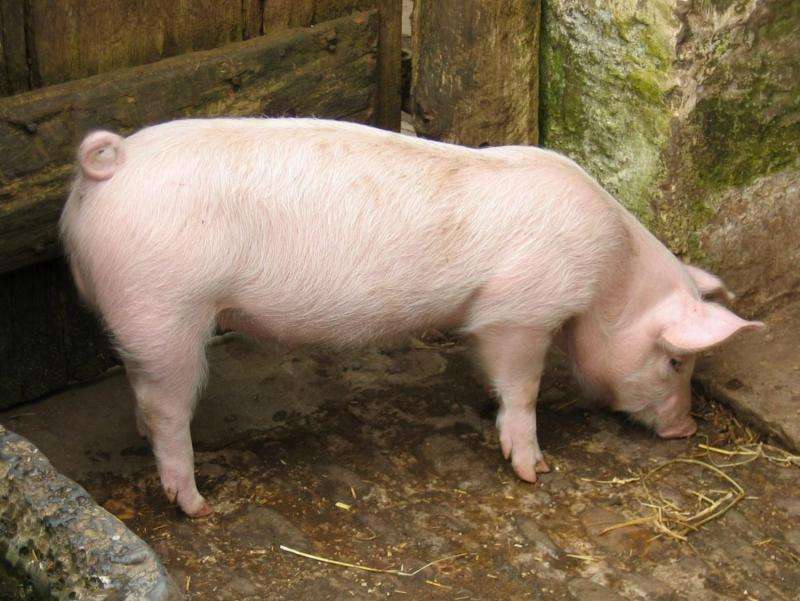Scientists overcome pig genome flaw

Through her work, Dr Rebecca O'Connor in the School of Biosciences, found previously undiscovered, fundamental flaws in the pig genome, the results of which have contributed to improved mapping of the pig genome.
In pigs – which provide 43 percent of the meat consumed worldwide – a chromosome defect can affect fertility.
With each pig producing as many as 14 piglets per litter, a faulty chromosome can reduce this by as much as half, with massive economic costs to the producer.
Dr O'Connor's research, carried out in the Griffin Laboratory, has led to the development of chromosome screening devices for both pigs and cattle and a chromosome screening service to multiple agricultural food providers.
Now with 13 clients in eight different countries, the team are screening hundreds of samples a year, as well as adapting the method to screen for chromosome abnormalities in other species.
The research findings were presented to agricultural industry leaders at the Pig Breeders Round Table Conference, one of the foremost international conferences on livestock genetics, held at the University of Kent in May 2017.
More information: R. E. O'Connor et al. Isolation of subtelomeric sequences of porcine chromosomes for translocation screening reveals errors in the pig genome assembly, Animal Genetics (2017). DOI: 10.1111/age.12548
Provided by University of Kent




















